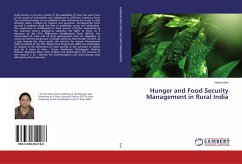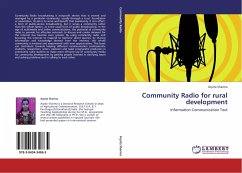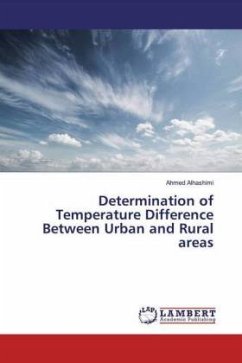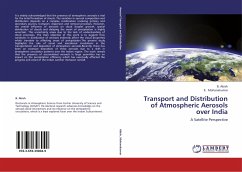
Hunger and Food Security Management in Rural India
Versandkostenfrei!
Nicht lieferbar
Food security is not just a matter of the availability of food, but even more of the access of households and individuals to sufficient nutritious food. The nutritional status of an individual is also influenced by access to safe drinking water, facilities for hygiene and sanitation. Consequently, food security is analyzed along the axes of availability, access and absorption. The importance of entitlements in food security is further underlined by the Supreme Court's judgments validating the Right to Food. As a signatory to the UN's Millennium Development Goals (MDGs), the Government of India...
Food security is not just a matter of the availability of food, but even more of the access of households and individuals to sufficient nutritious food. The nutritional status of an individual is also influenced by access to safe drinking water, facilities for hygiene and sanitation. Consequently, food security is analyzed along the axes of availability, access and absorption. The importance of entitlements in food security is further underlined by the Supreme Court's judgments validating the Right to Food. As a signatory to the UN's Millennium Development Goals (MDGs), the Government of India and all state governments have an obligation to reduce by half the proportion of people suffering from hunger by 2015. As a step towards the above goals, the Institute for Human Development (IHD) on behalf of the UN's World Food Programme (WFP) has undertaken an analysis of the dimensions of food security at the sub-state or district level for 8 states of India - Orissa, Jharkhand, Chhatisgarh, Madhya Pradesh, Rajasthan, Bihar, Uttar Pradesh and Maharashtra. The purpose of this research is to: l Identify the districts/regions and social groups most affected by food insecurity...













